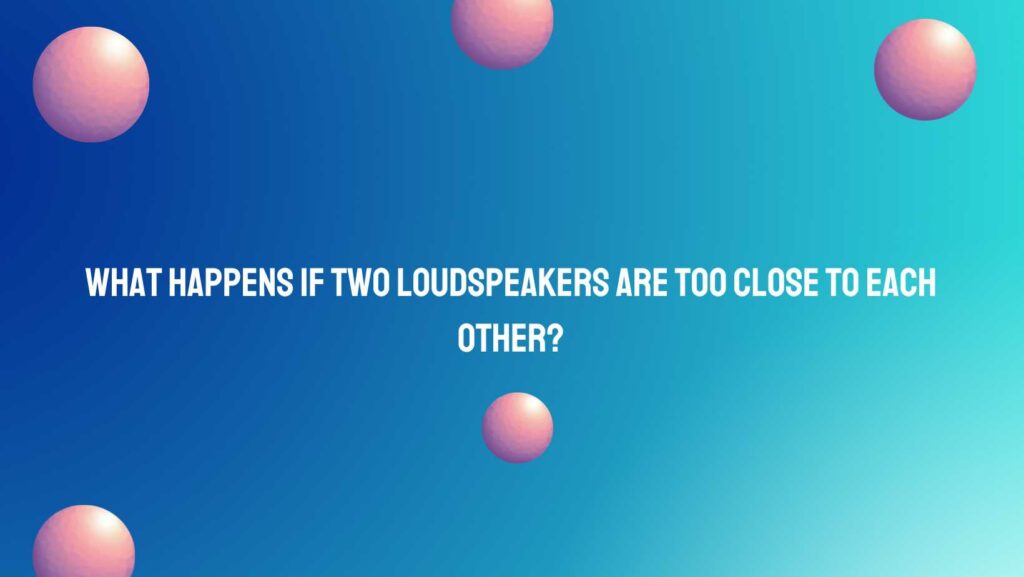When two loudspeakers are too close to each other, the sound waves from each speaker can interfere with each other. This interference can cause the sound to be distorted, quieter, or even completely cancelled out in some areas.
The exact effect of the interference depends on a number of factors, including the distance between the speakers, the frequency of the sound waves, and the relative phase of the speakers.
If the speakers are very close together, the sound waves from each speaker will arrive at the listener’s ears at slightly different times. This can cause the sound to be distorted, as the different sound waves will interact with each other in complex ways.
In addition, if the speakers are too close together, they can interfere with each other constructively and destructively. Constructive interference occurs when the sound waves from the two speakers arrive at the listener’s ears at the same time and in phase. This can cause the sound to be louder. Destructive interference occurs when the sound waves from the two speakers arrive at the listener’s ears at the same time but out of phase. This can cause the sound to be quieter or even cancelled out completely in some areas.
The frequency of the sound waves also affects the way that they interfere with each other. Lower frequency sound waves have longer wavelengths, so they are more likely to interfere with each other constructively and destructively. Higher frequency sound waves have shorter wavelengths, so they are less likely to interfere with each other.
The relative phase of the speakers also affects the way that they interfere with each other. If the speakers are in phase, the sound waves from the two speakers will arrive at the listener’s ears at the same time. If the speakers are out of phase, the sound waves from the two speakers will arrive at the listener’s ears at different times.
Problems caused by placing two loudspeakers too close to each other
There are a number of problems that can be caused by placing two loudspeakers too close to each other. These problems include:
- Distorted sound: As mentioned above, if the speakers are too close together, the sound waves from each speaker can interfere with each other and cause the sound to be distorted.
- Quieter sound: If the speakers are too close together, they can interfere with each other destructively and cause the sound to be quieter.
- Reduced stereo effect: If the speakers are too close together, the stereo effect will be reduced. This is because the listener will not be able to clearly distinguish the sound coming from each speaker.
- Increased feedback: If the speakers are too close to each other, there is an increased risk of feedback. This is because the sound from one speaker can be picked up by the other speaker and amplified, creating a howling or squealing noise.
How to avoid the problems caused by placing two loudspeakers too close to each other
The best way to avoid the problems caused by placing two loudspeakers too close to each other is to space them apart evenly. The ideal spacing for two loudspeakers depends on a number of factors, including the size and shape of the room, the type of speakers, and the listener’s preferences. However, a good general rule of thumb is to space the speakers apart by a distance that is equal to the distance between the speakers and the listener.
In addition to spacing the speakers apart evenly, it is also important to position the speakers correctly. The speakers should be positioned so that they are pointing directly at the listener’s ears. If the speakers are pointing in different directions, the stereo effect will be reduced.
If you are having problems with distorted, quiet, or feedback-prone sound, try spacing the speakers apart further. You may also want to try adjusting the position of the speakers.
Conclusion
Placing two loudspeakers too close to each other can cause a number of problems, including distorted sound, quieter sound, reduced stereo effect, and increased feedback. To avoid these problems, it is important to space the speakers apart evenly and to position them correctly.


